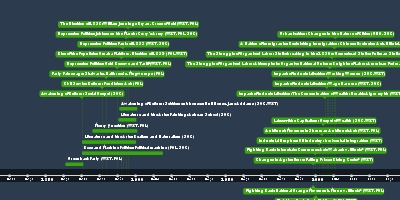mar 13, 1890 - Depression Politics: Gold Reserve and Tariff (WXT, POL)
Description:
With the prices of silver at a steady decline, many investors retreated their money from silver and invested it into gold, the only problem was that the amount of gold in the gold reserve was declining as well and reaching dangerous lows. In an attempt to solve the issue at hand, President Cleveland repealed the Sherman Silver Purchase Act of 1890. However, the decline in gold supply in the reserve did not stop. So the president looked to a wealthy banker by the name of J.P. Morgan to borrow 65 million dollars to support the gold standard and the dollar. This act left a bad taste in the mouths of the American people, it convinced them that the government was simply an asset to the rich bankers of America. Along with sending troops to subside the Pullman Strike in 1894, the people began seeing Cleveland in a bad light. Around the same year, the Wilson-Gorman tariff was passed, which reduced tariff rates and placed a two percent income tax on any individual who gained more than $2000 given that most Americans at the time only gained less than $1000 dollars in income. It was after the Wilson-Gorman act was passed that the Supreme Court deemed the income tax unconstitutional.Added to timeline:
Date:
mar 13, 1890
Now
~ 135 years ago
